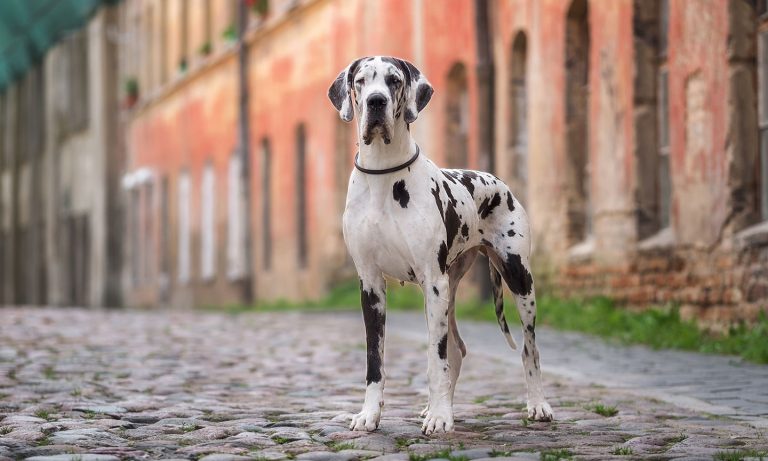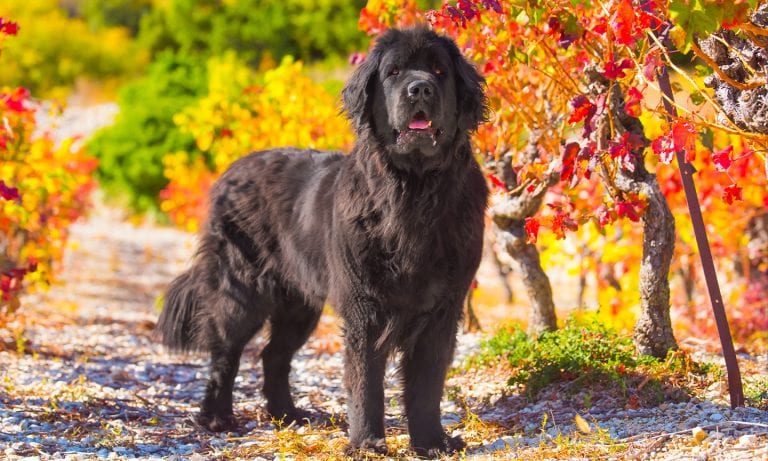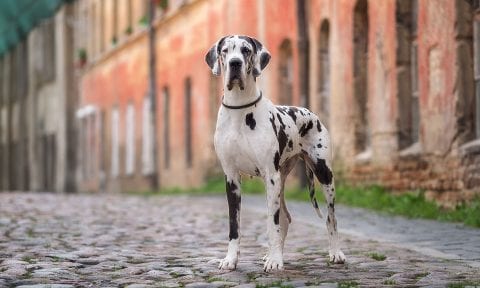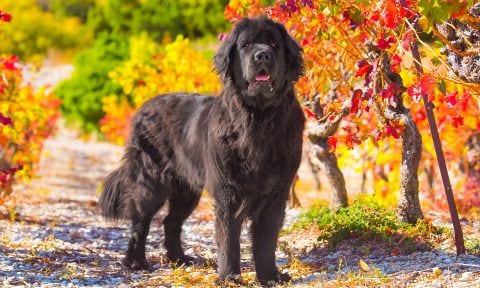Great Dane vs Newfoundland

Breed Snapshot
Best For
Great Danes are regal, gentle giants with a calm temperament and moderate exercise needs. They make wonderful family companions, and the amount of love they have to give is as big as they are. They're...
Great Danes are regal, gentle giants with a calm temperament and moderate exercise needs. They make wonderful family companions, and the amount of love they have to give is as big as they are. They're ideal for pet parents seeking pet who's as affectionate as they are, well, huge.
Great Dane Temperament
Don’t be fooled by the breed’s large size and assume this dog has an intimidating personality to match. Great Danes are, in fact, loyal and kind with happy personalities and they desire to always be near their people. Great Danes prefer to keep you in their line of...
Don’t be fooled by the breed’s large size and assume this dog has an intimidating personality to match. Great Danes are, in fact, loyal and kind with happy personalities and they desire to always be near their people. Great Danes prefer to keep you in their line of sight, and you can forget about eating alone or cooking a meal by yourself ever again!
Great Danes can sometimes come off as shy, aloof or reserved. Socializing your Great Dane puppy at an early age will help them become more comfortable around new people and other dogs. They have a deep, powerful bark that can be intimidating to visitors, but this is a case where the bark is really worse than the bite.
The Great Dane was originally bred to be a hunting dog. Today, they mainly fill the role of “lovable family member.” And don’t be surprised if your Great Dane attempts to be a lap dog—the results can be hilarious.
Great Dane Traits

Breed Snapshot
Best For
Newfoundlands, known for their gentle giant demeanor, need regular exercise and grooming. They thrive in families with space and love water activities.
Newfoundland Temperament
Newfoundlands are known for having a patient and gentle personality. They love being around their people and are naturally friendly with strangers. Just like any other breed, they need early socialization (aka exposure to new people, places and things) to understand how to play appropriately with other dogs; sometimes the goofy Newfie doesn’t realize...
Newfoundlands are known for having a patient and gentle personality. They love being around their people and are naturally friendly with strangers. Just like any other breed, they need early socialization (aka exposure to new people, places and things) to understand how to play appropriately with other dogs; sometimes the goofy Newfie doesn’t realize how big they are! But consistent training will help your Newfoundland puppy grow up to be a confident, well-mannered dog.
The sweet-tempered Newfoundland makes a great family dog, as they typically get along well with kids of all ages, including babies and toddlers. While it may be cute, make sure your child doesn’t sit or ride on your Newfie. The dog may tolerate it, but as they get older, health problems like hip dysplasia can make them uncomfortable. This breed isn’t known for having aggressive tendencies, so pain is about the only reason a Newfoundland would growl or bite (outside of typical puppy behavior).
While the Newfoundland breed is often treated as family (especially in the United States), they are still used as working dogs in their home provinces of Newfoundland and Labrador, Canada. Originally bred for their skill at water rescues and to haul in fishing nets, today, the dogs are used for pulling carts or as pack horses. (And you may find they enjoy participating in “working” dog sports like carting and drafting competitions.)




